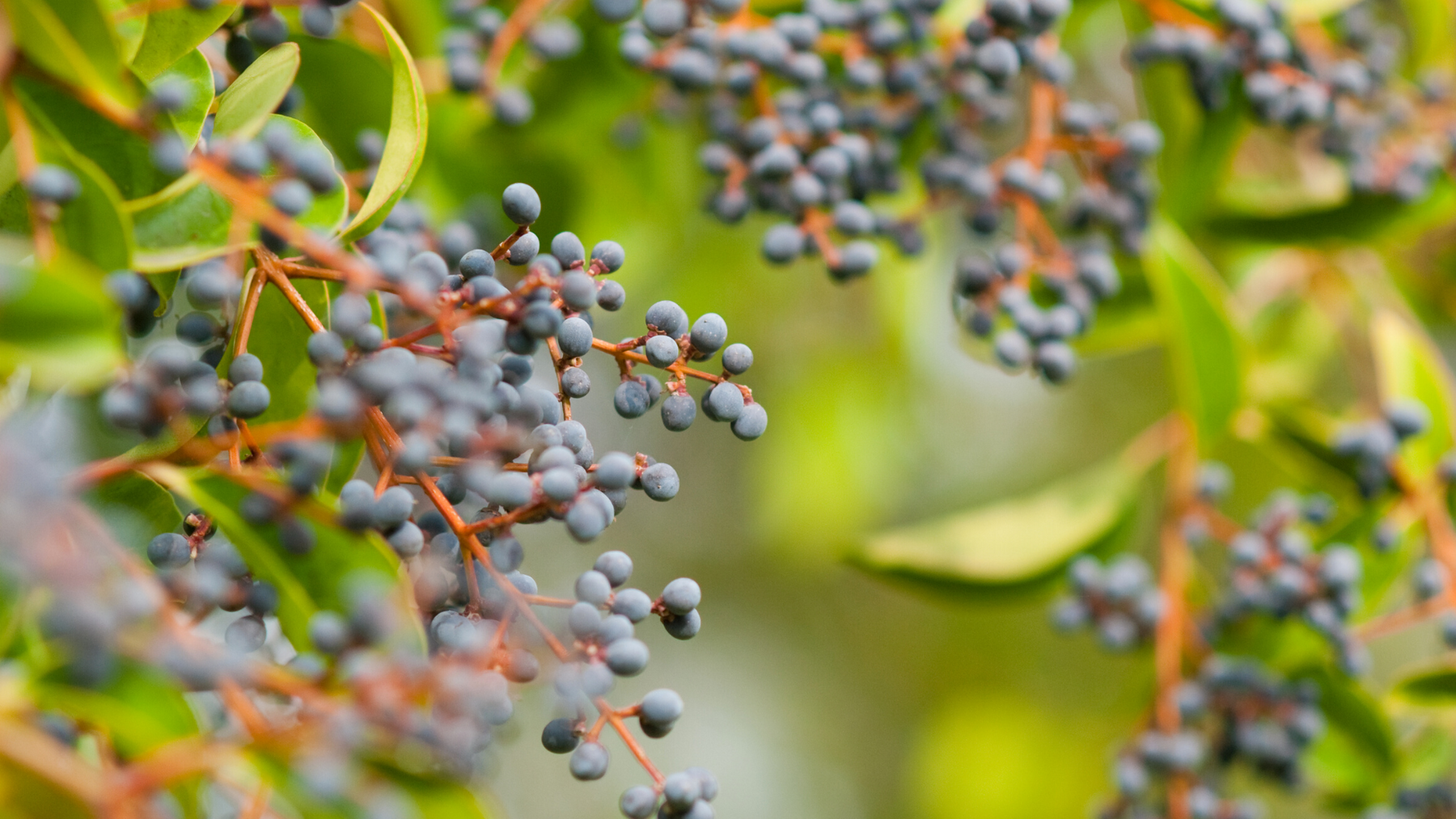
The Benefits and Uses of Elderberries
Elderberry is a shrub that grows in many parts of the world and has been used for centuries in traditional medicine as a natural remedy for a variety of ailments .
The elderberry plant flowers in early Summer with white or cream-colored flowers, and the edible black or dark blue berries fill the plant towards the end of Summer.
This shrub is quite beautiful once it flowers, and the buds and pollen can be used for a number of different drinks, scents, cosmetics and tinctures.
However, the majority of the plant is actually poisonous. The only edible parts are the ripe berries. The berries themselves actually contain small seeds, which can also be dangerous to eat so it is very important to properly prepare any home concoctions and make sure you’re only using the edible parts.
That being said, the elderberries are incredibly rich in antioxidants and vitamins, making them a popular choice for boosting immunity and fighting off colds and flu. Below are some of the many benefits of elderberries.
Here are some of the benefits of elderberries:
1. They are packed with antioxidants and vitamins that can help boost your immune system.
Elderberries are a powerhouse of antioxidants and vitamins, making them one of the most beneficial berries around. Elderberries are rich in vitamins A and C, as well as in anthocyanins and flavonoids - all of which are excellent for boosting immunity and fighting off infection.
2. Elderberries have anti-inflammatory properties that can help reduce the symptoms of conditions like arthritis and asthma.
In one study, participants who took an elderberry supplement for eight weeks had a significant reduction in joint pain and stiffness. Elderberry extract has also been shown to reduce airway inflammation in people with asthma.
While more research is needed to confirm the efficacy of elderberries for treating inflammation, the early results are promising. From what we can see, it is all the more effective when paired with turmeric, which also has anti-inflammatory properties.
3. Elderberries can also help improve your cardiovascular health by reducing cholesterol and blood pressure levels.
In recent years there have been a number of studies conducted that suggest that elderberries help to lower LDL (bad cholesterol). This is likely due to the fact that these berries contain a substance called sterols, which are commonly used to reduce cholesterol through the gut.
These sterols are very similar looking to cholesterol and once it enters the body it competes with the cholesterol for absorption. One the cholesterol is absorbed it is then expelled from the body as waste, lowering cholesterol levels.
4. Elderberries contain high levels of fiber, which can help promote digestion and prevent constipation.
Fiber is important for digestion and can help to relieve constipation. Elderberries contain high levels of dietary fiber. This can help to prevent constipation by keeping stool soft and easy to pass.
Not only that, but the antibacterial properties of elderberries may also help promote gut health, and allow some relief.
5. Elderberries can help improve your cognitive function and memory recall.
Elderberries have been shown to improve cognitive function and memory. A recent study found that elderberries can help improve memory and cognitive function in people with mild cognitive impairment. The study found that elderberries can help to improve brain function by increasing blood flow to the brain.
Quercetin is a pigment found in plants which has been found to promote brain health and has shown positive results in patients with dementia.The quercetin pairs well with the elderberries’ rich source of antioxidants and anti-inflammatory properties, which may contribute to their ability to improve cognitive function.
All of these benefits can be especially beneficial for children, as they are exposed to so many germs and viruses everyday. Elderberries can boost their immune systems and provide them with much-needed antioxidants. Although it is not recommended that you supplement necessary medical care for these berries, they have been found to help rid the body of infection quicker.
How to use elderberries?
Elderberries have long been used in folk medicine as a remedy for colds and the flu, but there are many other benefits that we get to experience from this plant, if used in the correct way.
The berries are rich in vitamins A and C, as well as antioxidants and other compounds that boost immunity. Elderberry tea is a popular way to get these benefits, without having to do too much work. It is recommended that you start with a cup a day to make sure you aren’t allergic to the berry and to keep an eye on how your body reacts to the plant too.
If you have dried elderberries then you can make elderberry syrup to add to your tea or to use for baking.
If too much elderberry is consumed, in any form, then you may experience some negative side effects such as nausea, diarrhea, dizziness and vomiting.
Elderberries can also be used topically to treat skin conditions like acne and eczema. The berries contain anti-inflammatory compounds that can help soothe irritated skin. They help to manage the oils in your skin, preventing breakouts and swelling.
Another way to incorporate these berries into your day-to-day is to use it on your hair. It can promote good scalp health and can prevent hair fall by strengthening the roots and dry ends.
Written by Caryn Mackenzie on behalf of Turmeric Zone